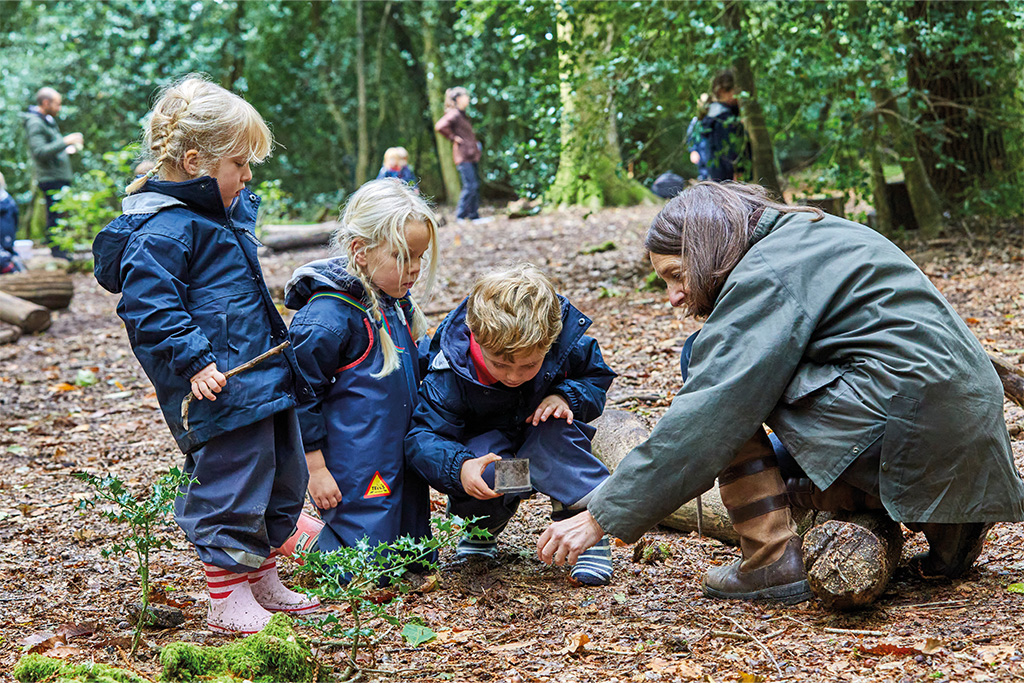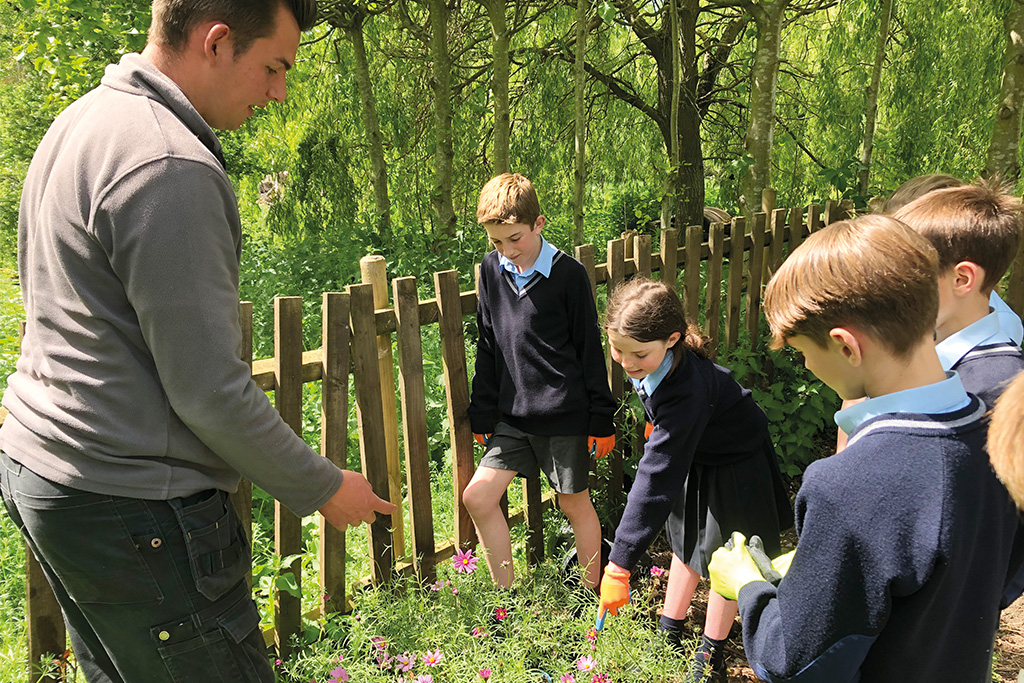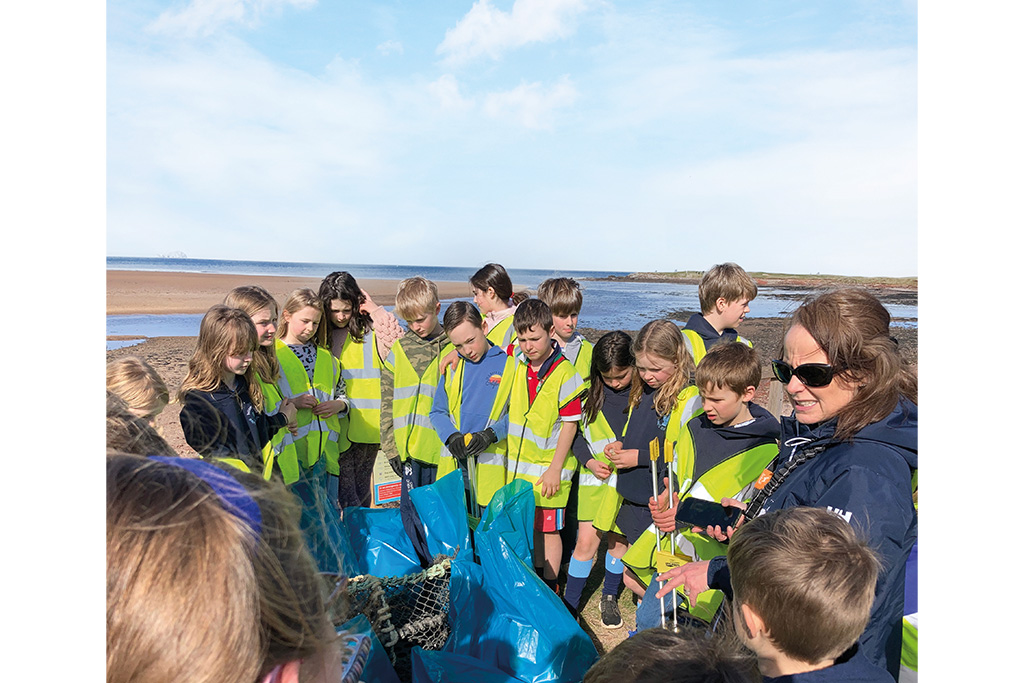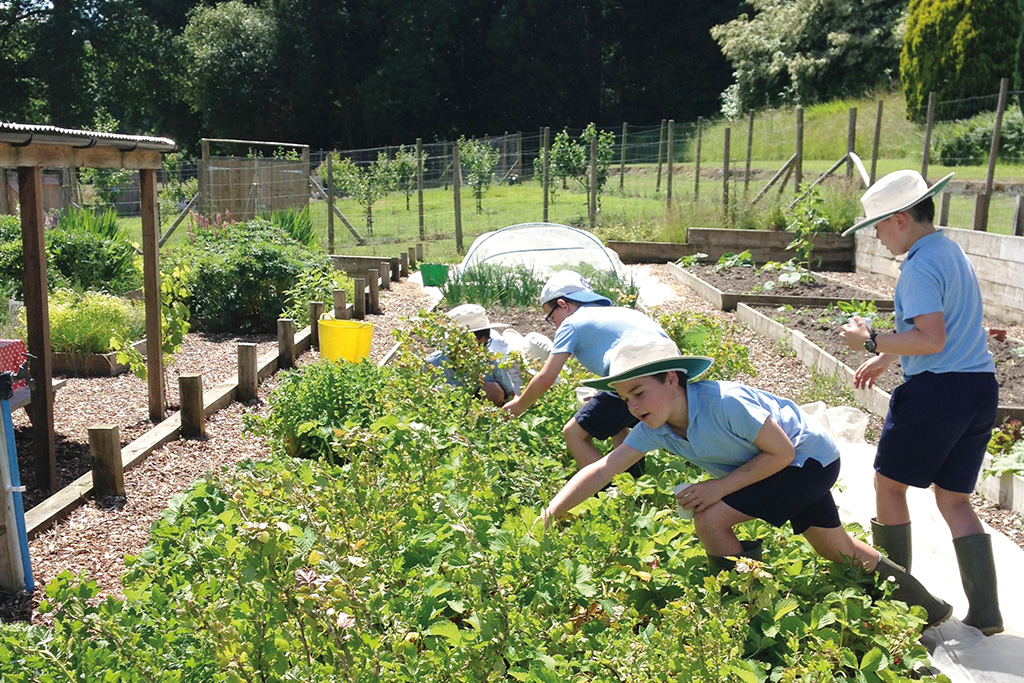Eco Preps
By
2 years ago

When it comes to protecting the planet, eco preps are embracing positive change, says Emma Reed
One of the striking features of many prep schools is their location. Often in spectacular settings, housed in grand buildings, beauty is all around. It’s no wonder there’s a daily reminder that such beauty is worth preserving. If you work hard to safeguard your immediate surroundings, there will be a ripple effect that can impact matters of global importance.
As John Forsyth, founder and CEO of Forfar Education states, ‘Our role is to nurture and instil confidence in the next generation, and just as importantly, we need to ensure there is a world for that generation to enter into.
‘We need to help the next generation to live in an environmentally responsible way to develop a sustainable mindset enabling the power and beauty of nature to be admired and understood for generations to come.’ Many prep schools are doing just that.
David Griffiths, headmaster of Old Buckenham Hall (OBH), describes the location of his school, set in 80 acres of Suffolk countryside as an ‘environmental idyll’, with deer and pheasant often running through the school grounds. Its rural setting lends itself to pupils having an interest in the environment. As a result, the school has a very vibrant Eco Committee and Griffiths is keen on giving pupils a platform.

‘At the moment I have a boy who is petitioning the school for meat-free Monday, and I recently had a visit from a Year 5 girl who brought a whole host of initiatives, one of which was for every teacher to have a plant in their classroom which she discussed with the staff.’ Pupils have proposed having an allotment for each of the four Houses at the school. There’s also a thriving Chicken Club where the children are responsible for many rescue chickens whose eggs are used in the school kitchen.
Griffiths acknowledges the challenges that come with making a Grade II-listed 400-year-old building environmentally friendly, but it’s something they are working on. ‘We have an environmental improvement plan, so when the governing body or senior management team makes decisions, we are always referring back to that.’
A theme of trees and bees emerges. At OBH, an oak tree is planted for every child who joins Reception, and they join the local village in apple pressing from their orchard. Pupils have been involved with building beehives and looking after the bees, with the honey produced being used in the kitchens. Walhampton School in Hampshire is involved in beekeeping and making their own honey, as well.
At Belhaven Hill School, Dunbar, Headmaster Olly Langton describes how they are preparing to be involved in the Queen’s Green Canopy scheme which encourages tree planting in the Jubilee year. ‘My aim is to have a tree per child starting in the autumn: a dwarf apple tree which would reach maturity in five years. The idea is that they uproot the tree when they leave to replant wherever they go.’
Swithun Sewell, a teacher at St Peter’s School, York, who coordinates their Eco Club, regards planting trees as ‘an act of hope for the future’. At Easter, they received a gift of 10 apple trees from the Worshipful Company of Fruiterers who are running a ‘Treebilee’ project as part of the Green Canopy initiative. Within Highfield and Brookham School, Hampshire, and the wider estate, 1,500 trees and shrubs have been planted in the past three years.

Pupil engagement is key, as illustrated by Belhaven’s inaugural COPPS1 event (Community of Prep and Primary Schools in Scotland) in March. Pupils from several schools attended and gave presentations on environmental issues to a panel of judges. ‘The quality of the presentations from all the schools was extraordinary,’ says Langton. Attendees were given a bird box to put up at their school. Langton is hoping COPPS becomes a regular feature of their circuit to foster community engagement.
Given Belhaven’s coastal setting, pupils heard from Surfers Against Sewage. ‘Their encouragement to think global and act local is really powerful,’ notes Langton. Acting locally involves pupils doing beach cleans, and a rewilding project is part of their future plans.
Langton is keen to ensure environmental issues are part of the curriculum. ‘If there’s an overarching ambition, it’s to make sure that it’s more important for them than it was for our generation. We’re in the process of producing a sustainability policy and we’ve achieved the status of becoming a plastics-free school.
‘We’re a Green Flag school in Scotland as well which you have to go through rigorous checklists to achieve.’ He acknowledges the challenges involved particularly for a school that’s going to be celebrating its centenary next year. Becoming carbon neutral is not going to happen any time soon in a rigid time frame, but they are constantly working to improve.

While Walhampton School has an ambitious goal of working towards being carbon neutral by 2030, Head Jonny Timms asserts that it’s the journey towards that goal and the progress made that’s important. ‘It’s a huge challenge and change takes time,’ he says. They’ve set up a Carbon Zero Committee with pupil representatives holding various events such as a ‘great green marketplace’ showcasing eco produce.
Many things are happening from a school perspective and Timms remarks that the children already have a sense of stewardship given their location with the New Forest on one side and the Solent on the other. However, he adds, ‘we’re trying to get the children to really think much more widely than the school. I talk to the children about being disruptive in a positive way. The ability to use their voice is really important.’
Walhampton achieved Green Flag status in 2018 working on a range of themes including food waste, protecting the marine environment, using energy wisely and biodiversity. They set up recycling bins and installed a biomass boiler. They are being as creative as they can while respecting their old buildings, looking at things like solar installation.
Although St Peter’s is in the centre of York, they have lots of green space where wildlife can thrive. Proximity to the river naturally lends itself to an awareness of climate change and flooding. The Environment Agency gave a talk to a geography class showing aerial pictures of flood defences and their role in protecting the city. The school is also looking into a park and ride scheme for older pupils to alleviate congestion and they have three electric vehicles of their own on-site.
The school has been involved with The Great British Spring Clean, organised by Keep Britain Tidy, and has been litter-picking on the North Yorkshire coast. ‘It’s trying to engage with as many local community initiatives as possible,’ says Catherine Hodgson, a spokesperson for St Peter’s. ‘We have a master plan of what we want the campus to look like for the next 10 years. Sustainability will be a deciding factor in any decisions.’
The school has been improving its energy efficiency, implementing a replacement programme of old boilers and has been working with TerraCycle which takes away items that are hard to recycle. Its Eco Club has made a wormery and bug hotel, and plants and harvests its own vegetables.

The range of initiatives adopted by some preps are impressive. Bede’s in Sussex held an Eco and Environment Writing Competition and pupils did investigations into traffic congestion and air pollution in Eastbourne following a talk from the environmental campaign group, Sustrans. During Energy Awareness Week, they undertook a whole school blackout!
Ravenscourt Park Prep in London is Green Flag accredited with its own dedicated eco twitter and Instagram pages (@RPPS_Eco). The children helping to support and create the school’s environmental policy are called Eco Warriors. They have implemented two Switch Off Fortnights tracking energy reduction, recycling, and a Walk to School week.
The Forfar Education group, which includes Cameron Vale and Horris Hill, has committed to becoming the first carbon-zero schools’ group in the UK in the next five years, using 100 per cent renewable energy. All of their schools will be carbon mapped to understand their carbon footprint, as well as banning single-use plastics and introducing a rewilding scheme.
Highfield and Brookham School in Hampshire has implemented a raft of measures, with ambitious plans for the future. Its estate manager Guy Baber says: ‘Our objective is to be one of the leading schools and estates in the country in terms of improving our carbon footprint, with the aim of being Climate Positive within the next five years.’
Current schemes include the installation of owl boxes, solar panels, electric vehicles for the grounds team, biomass boilers and increasing the number of green corridors to encourage wildlife, to name but a few. Future plans include a possible wind power turbine and a solar field with battery storage, a bat hibernacula in the old bomb shelters in the Upper Brookham Valley and the creation of new paths to improve walking access.
It’s clear the right kind of energy is being poured into environmental matters among the preps. As Sewell of St Peter’s notes: ‘Taking part in all these activities helps children love the world we live in and help take care of it.’
Fittingly, the last word goes to Year 8 Izzy Hendricks at Highfield and Brookham. ‘It’s important children are involved in sustainability. There is still more we can do.’ With this attitude, the earth is in safer hands.
See the listings of the schools mentioned here: Old Buckenham Hall, Belhaven Hill, St Peter’s York, Highfield and Brookham, Walhampton, Horris Hill, Cameron Vale, Ravenscourt Park Prep, Bede’s Senior School.



